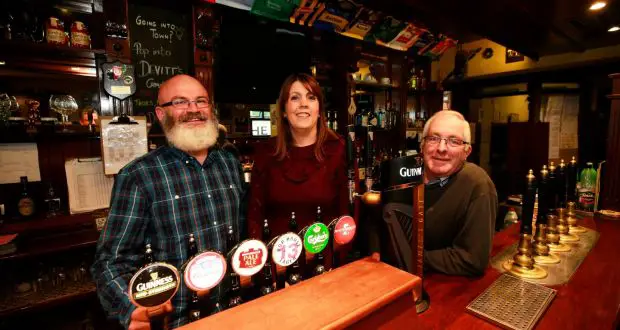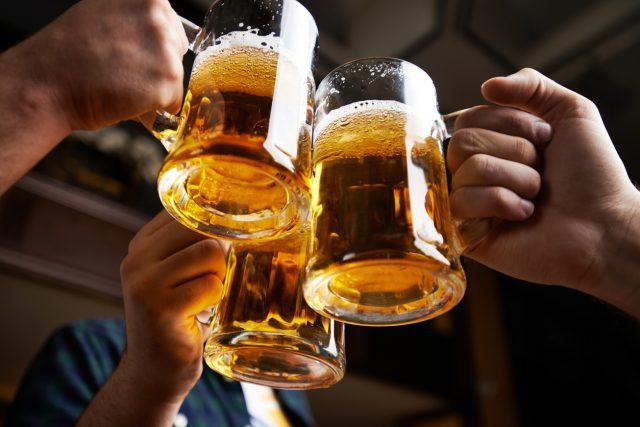As the century progresses, there will be less beer and it will be more expensive to get. Climate change is causing a greater frequency and intensity in droughts and heat waves, which will affect cereal production. A recent study has focused on quantifying its impact on barley, the essential component of beer. The work concludes that in the worst years the harvest of large producers, such as Germany or Belgium, will be reduced by almost 40%. At the end of the century, and in the worst scenario, there will be places like Irish taverns where a pint could almost quadruple its price.

To model the evolution of barley production, its availability for brewing and the evolution of prices, a group of researchers has collected data on heat waves and periods of drought since 1981 in the main regions where it is grown the cereal. All the predictions indicate that both climatic phenomena increase in frequency and intensity. They also noted the average yield of the crops and their decline after each of these episodes. Then they projected the model into the future, by adjusting it to the different possible climatic scenarios that will depend on how humans reduce the emissions that heat the planet.
The results of the research, published in Nature Plants, indicate that even fulfilling what the United Nations is asking for, and beginning right now to reverse climate change, there will be an increase in extreme climatic phenomena. The authors of the work estimate that, in the worst scenario, these events will reduce the world production of barley by 17%. But the average hides regional losses in much higher harvests: in Germany, Belgium, and the Czech Republic, 3 of the countries with the greatest brewing tradition, could have years with losses of up to 38%. The percentages will also exceed 20% in other regions, such as Brazil or East Africa.
“We could think about keeping the barley of the good years for use in the bad ones”. It would not be a bad idea if it were not because the quality of the cereal suffers when stored more than a few months, and, at least until now, the silage barley has not been used to make beer, says Steven Davis, who researches the effects of climate change at the University of California in Irvine and co-author of the study. “So 17% is a significant decrease in barley supply, which will cause substantial changes in the consumption and price of beer”, adds Davis.
In a 2nd part of the work, the researchers fed an economic model with beer production and consumption data (FAO statistics for 2011) and prices for the half-liter bottle (or equivalent) of 2017 and analyzed the impact of the expected declines in barley available. The model took into account other variables, such as purchasing power, measured in GDP per capita, if the domestic production of barley is enough to supply the local brewing industry or must be imported and, as a determining factor, the proportion of cereal available that is destined to make beer or to feed the cattle, which is its other great destiny.
“According to our data, just over 67% of global barley production is dedicated to feeding livestock”, says the researcher at the Chinese Center for Agrarian Policy at Peking University and co-author of the Tariq Ali study. Another 16% is used as a human food, lost in processing or reserved for future plantings. The rest is dedicated to the production of beer. Keep in mind that the best barley is taken by the brewing industry; It is a matter of added value. Brazil is a clear example. Being a country with a powerful livestock sector, 83% of the barley that it harvests goes to the breweries and still has to import.
In a scenario with a gradual reduction of cereal production, dotted with years of bad harvests in one of the big producers, tensions over the distribution of barley will not stop growing. “In times of scarcity of barley, we will have to face the dilemma of sustaining our livestock, allocating enough grain for its food, or beer supply, conserving its share of production. In the end, the choice will depend on how the different sectors react. Each region will be likely to change its supply of barley and its price, maximizing the benefits”, Ali reasons.
The most obvious consequence of these tensions will be a parallel process of increasing the price of beer and relative decline in its consumption. With data from 2011, China, the United States, and Brazil, with Spain in the 8th place, are the countries that drink more beer. However, in per capita consumption, the classification is led by the Irish (with 138 liters per person per year), followed by almost all of the Central European countries.
After extreme weather events, the beer consumed will fall in global terms by 16%, some 29,000 million liters, a figure close to the one consumed today by the United States. Meanwhile, its price could double in the worst years. As with the production of barley, the changes in consumption and prices also show marked regional differences that depend on aspects such as internal production, purchasing capacity or beer’s own liking.

The most extreme case of these swings caused by climate change is that of Ireland. First consumer country of beer per capita, after a bad crop year the price of beer there will rise between 43% (best scenario) and 338% (worst) and consumption could be reduced by 40 liters per person and year. Even so, they would still be the most drinkers. Other net importers of barley, such as Germans and Czechs, will have more moderate consumption reductions, and other ones will simply stop drinking beer.
“When there are supplying problems, prices go up”, recalls Dabo Guan, professor of climate change economics at East Anglia University (United Kingdom). For Guan, also a co-author of the study, it’s all about money: “The developed countries have more purchasing power, so the production of beer that will satisfy the demand of those who have more money, since it is a basic product. With climate change, poor people in China, India, Brazil or African countries will have to worry more about their food security (having enough food) than about sumptuary consumption, like beer”.

